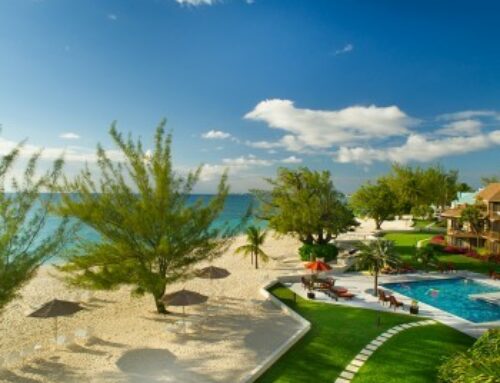The Cayman Turtle Farm (CTF) is taking action on recommendations coming out of a December 2012 independent inspection by a team of internationally recognised sea turtle experts. The assessment took place from 10-12 December 2012 and the Cayman Turtle Farm released the inspection report to the media and public today (Friday, 25th January).
“We are taking the findings and recommendations of the report very seriously,” said Managing Director Tim Adam. “The Board of Directors and the Cayman Turtle Farm management team are committed to taking all possible steps to address the concerns listed by the external experts in the assessment report, and have already taken action on several items. ”
The assessment was carried out by a 4-member team of independent international conservation and sea turtle specialists. All are noted and respected experts on the care, health and conservation of sea turtles and none were employed or remunerated by the Cayman Turtle Farm.
The resulting inspection report notes that the Cayman Turtle Farm makes several important positive contributions to the conservation of and research on green sea turtles, while also stating areas of concern requiring improvement.
The inspection report validated the CTF’s provision of a legal source of turtle meat as a way to assist in the prevention of illegal poaching in the wild; confirmed the inspectors had no health or injury concerns with regard to guests handling turtles, either for the turtles or for the humans interacting with them; found no evidence of congenital deformities among the Farm’s turtle population; concluded that the process of harvesting turtles for meat is carried out humanely and hygienically; found clear evidence that the Cayman Turtle Farm’s turtle release programme contributed to the enhancement of the wild nesting population; and saw the Cayman Turtle Farm’s research programmes as invaluable in understanding the biology of green sea turtles.
The majority of the assessment team’s recommendations for improvement were focused on the commercial production operations of the Cayman Turtle Farm.
One recommendation for immediate implementation has already been actioned, namely that of the recruitment of a full-time veterinarian. “The Cayman Turtle Farm is in the final stages of recruiting a full time veterinarian . Having a full-time veterinarian on staff will enable us to fulfil several of the short and long-term recommendations made by the inspection team,” Mr Adam said.
Another example of a recommendation of the report is that the CTF’s existing lesion treatment procedures should be “intensified, enhanced and their efficacy addressed”. This recommendation is already being pursued, Mr Adam said.
Recent experimental pre-clinical trials conducted by Dr. Carlos E. Crocker (St. Matthew’s University School of Veterinary Medicine) and Dr Walter Mustin of CTF have enabled the Cayman Turtle Farm to develop effective medication protocols for the treatment of skin lesions and, as a result, the Farm has subsequently expanded and intensified these treatments to include the aggressive treatment of all affected turtles in its care, Mr Adam explained.
Mr Adam said the Cayman Turtle Farm is grateful to the independent team of inspectors for their thorough and rigorous examination of the Farm. “We have considerably benefitted from their findings and recommendations as they highlight aspects to prioritise, and we reiterate our commitment to do everything within our capabilities to improve the Cayman Turtle Farm and the welfare of our turtles while continuing to ensure the safety and enjoyment of our visitors. The Cayman Turtle Farm initiated this inspection and we are pleased that the inspection team noted our courteous, collaborative approach to their requests and questions. We believe that the recommendations of the report will serve to enhance the quality of Cayman Turtle Farm and what we offer,” Mr Adam said.
As suggested by the inspectors, the Cayman Turtle Farm will be re-establishing a CTF Advisory Board to oversee, support and make recommendations on its on-going operations.
“The report contains various other recommendations which we are developing into short-term and long-term goals,” Mr Adam confirms. “The inspection report concluded that the improvements are fully achievable given sufficient desire and motivation on behalf of managers and decision makers. I would therefore like to underscore our commitment to pursuing the report’s recommendations to ensure a healthy, safe and sustainable environment for our turtles and all those who come to visit us.”
The full inspection report may be found on the Cayman Turtle Farm website at www.turtle.ky.
Cayman27 – 25 January 2013

